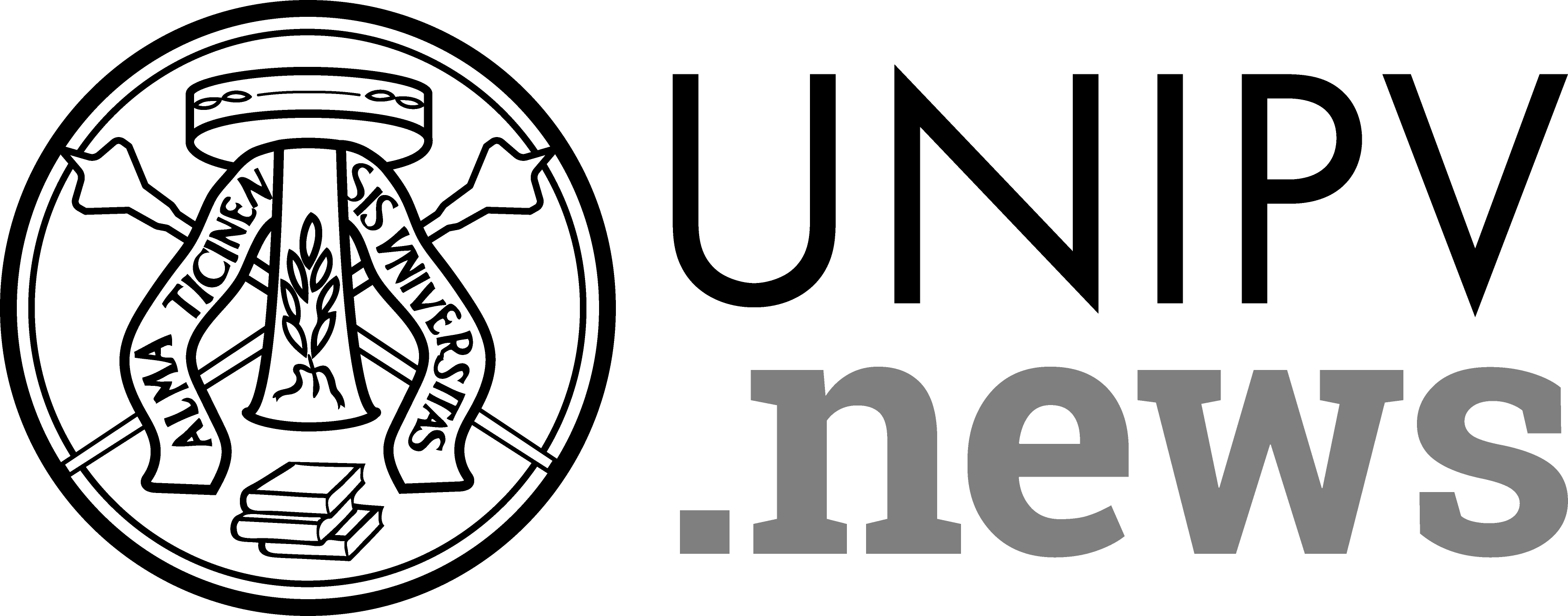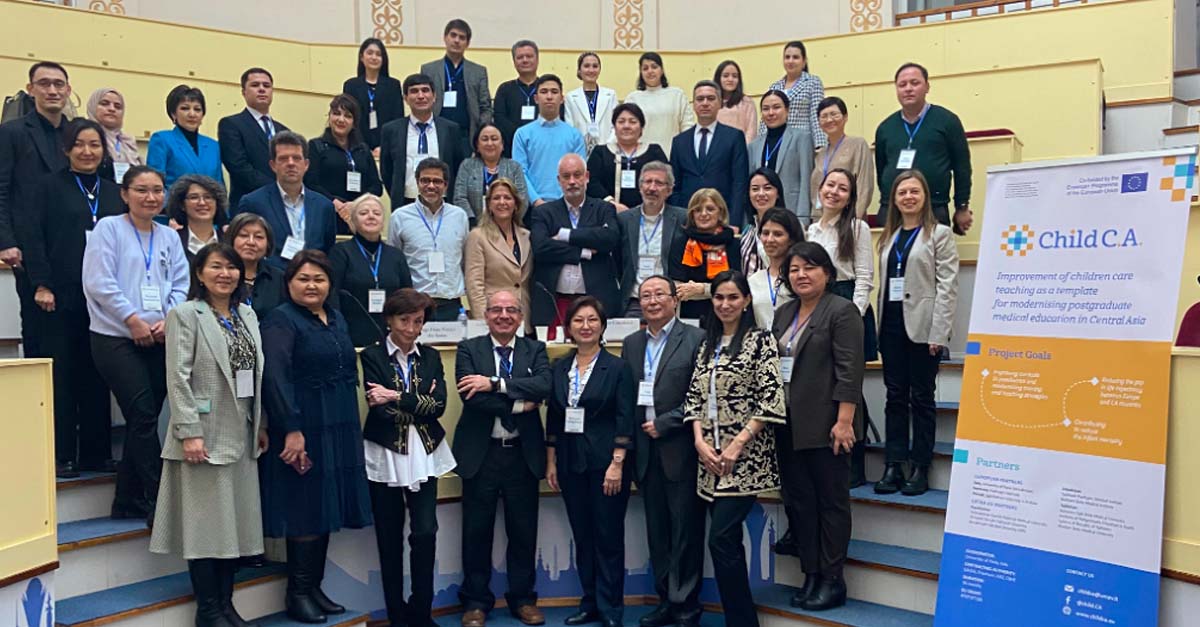(English below) Nei giorni 10 e 11 gennaio 2023, si è tenuta la conferenza finale del progetto Erasmus+ ChildCA (Improvement of CHILDdren care teaching as a template for upgrading medical education in Central Asia) – coordinato dall’Università degli Studi di Pavia: Dipartimento di Scienze Clinico-Chirurgiche, Diagnostiche e Pediatriche e Center for Global Strategic Engagement (GLOBEC), ad Almaty, in Kazakistan.
All’incontro hanno partecipato il prof. Gian Battista Parigi, coordinatore del progetto e lo staff del GLOBEC, Alena Poilova e Martina Altea Bellinzona. L’evento si è svolto presso l’Asfendiyarov Kazakh National Medical University e ha riunito rappresentanti di tutti i paesi partner, dell’Unione Europea e delle Repubbliche dell’Asia Centrale, insieme ad autorità locali come la coordinatrice dell’Ufficio Nazionale Erasmus+ dell’Uzbekistan, Aziza Abdurakhmanova.
L’incontro ha coinvolto diverse università di tre differenti paesi dell’Asia centrale:
- Kazakhstan:Università Nazionale Kazaka Al-Farabi, and Kazakhstan’s Medical University “KSPH” (VSHOZ).
- Tajikistan: Avicenna Tajik State Medical University, the Institute of postgraduate education in health sphere of Republic of Tajikistan, and Khatlon Medical State University.
- Uzbekistan: Bukhara State Medical Institute, and Tashkent Pediatric Medical Institute.
Durante le due giornate, ognuna delle università partner ha presentato i risultati del progetto nel contesto del loro paese.
I partecipanti hanno anche mostrato la loro esperienza durante i corsi di formazione sia a lungo termine sia a breve termine che si sono svolti in Europa durante settembre e ottobre 2022 simultaneamente presso i tre partner europei ChildCA – l’Università di Pavia (Italia), l’Università Jagellonica (Polonia), e l’Università di Friburgo (Germania).
La conferenza ha coinvolto anche diversi studenti, i quali sono stati valutati ed esaminati dall’UEMS (European Union of Medical Specialists).
Il progetto ChildCA è stato in grado di raggiungere molti risultati cruciali per migliorare l’insegnamento e l’educazione in ambito medico dei paesi dell’Asia centrale, tra cui:
- Lo sviluppo e l’implementazione di 8 nuovi curricula per la formazione post-laurea in Pediatria, Chirurgia Pediatrica e Neuropsichiatria Infantile, la piena approvazione di 8 nuovi curricula da parte delle autorità locali e il lancio di 3 corsi di laurea pilote nelle università partner kazake;
- La formazione di successo del personale accademico e dei medici provenienti dalle università kazake, tagike e uzbeke e il lancio di 3 corsi di formazione virtuali;
- L’acquisto di nuove attrezzature e l’introduzione di tecnologie ICT per l’apprendimento interattivo e l’istruzioneprevisto per le 8 università partner asiatiche.
***
10 & 11 JANUARY – FINAL CONFERENCE ERASMUS+ PROJECT “CHILDCA – Improvement of CHILDren care teaching as a template for upgrading medical education in Central Asia”
On January 10th – 11th, the final conference of the Erasmus+ project ChildCA (Improvement of CHILDdren care teaching as a template for upgrading medical education in Central Asia) – coordinated by the University of Pavia: Department of Clinical and Surgical, Diagnostic, and Pediatric Sciences and Center for Global Strategic Engagement (GLOBEC) – took place in Almaty, Kazakhstan.
Prof. Gian Battista Parigi, project coordinator, and the GLOBEC staff, Alena Poilova and Martina Altea Bellinzona, took part in the event.
The event was held at Asfendiyarov Kazakh National Medical University and gathered representatives from all partner countries, from the European Union and from Central Asian Republics, together with local authorities such as the National Erasmus+ Office coordinator of Uzbekistan, Aziza Abdurakhmanova.
The meeting involved several universities from three different countries in Central Asia:
- Kazakhstan:Al-Farabi Kazakh National University, and Kazakhstan’s Medical University “KSPH” (VSHOZ).
- Tajikistan: Avicenna Tajik State Medical University, the Institute of postgraduate education in health sphere of Republic of Tajikistan, and Khatlon Medical State University.
- Uzbekistan: Bukhara State Medical Institute, and Tashkent Pediatric Medical Institute.
During the two-day meeting, each partner university gave presentations about the project results in the context of their country.
The participants also displayed their experiences both in long-term and short-term training that simultaneously took place in Europe during September and October 2022 at the three European ChildCA partners – University of Pavia (Italy), Jagiellonian University (Poland), and Freiburg University (Germany).
The conference involved several students as well, and the UEMS (European Union of Medical Specialists) carried out students’ evaluation and exams.
The ChildCA project was able to achieve many crucial results that will contribute to improve the medical teaching and education of Central Asia Republics, such as:
- The development and implementation of 8 new curricula for post-graduate training in Paediatrics, Paediatric Surgery, and Child Neuropsychiatry; the full approval of 7 new curricula by local authorities, and the launch of 3 pilot degree courses at the Kazakh partner universities;
- The successful training of academic staff and clinicians from Kazakh, Tajik, and Uzbek Universities and the launch of 3 virtual training courses;
- The purchase of new equipment and the introduction of ICT technologies for interactive learning and educationprovided for the 8 Asian partner universities.




